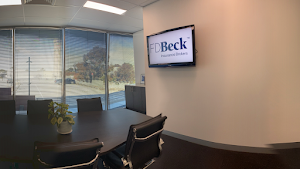- Professional Indemnity
Our ability to access markets, undertake portfolio reviews enables our client to make successful decisions
- Public Liability
Our ability to access markets, undertake portfolio reviews enables our client to make successful decisions
- Business Insurance
Our ability to access markets, undertake portfolio reviews enables our client to make successful decisions
- Consultants Insurance
When things go wrong, liabilities may affect your assets and reputation. That’s where FD Beck may help you through our competitive consultant and consulting business insurance.
- Advertising Agents Consultants
- Aged Care Consultants
- Agricultural Consultants
- Air Cargo Consultants
- Air Pollution Consultants
- Aquaculture Consultants
- Business Process Improvement Consultants
- Catering Consultants
- Change Management Consultants
- Communications Consultants
- Compliance Consultants
- Education Consultants
- Energy Efficiency Consultants
- Engineers & Construction
- Entomology Consultants
- Environmental Consultants
- Freight Forwarding
- Flora and Fauna Consultants
- Food Consultants
- Forestry Consultants
- Geological Consultants
- Government Consultants
- Health and Safety Consultants
- Heritage Consultant
- Home Sustainability Consultants
- Horticultural Consultants
- Hospital and Healthcare Consultants
- Hospitality and Hotel Management Consultants
- Human Resource Consultants
- Hygiene Consultant
- Image Consultant
- Industrial Relations Consultants Insurance
- Management Consultants Insurance
- Market Research Analysts Insurance
- Marketing Consultants Insurance
- Mediation Consultants
- Meteorologist Insurance
- Museum Consultants Curators
- Occupational Health and Safety Consultants
- Organisation Design Consultants
- Pool Safety Inspector
- Public Relations Consultant
- Quality Assurance Consultants
- Risk Management Consultants
- Recruitment Consultants
- Research and Policy Advisory Consultants
- Sewerage Consultants
- Solar Energy Consultants
- Strategic Planning Consultants
- Textile Consultants
- Traffic Management Consultant
- Waste Management Consultants
- Wine Industry Consultants
- Winemakers / Oenologists Consultants
- Workflow Efficiency Consultant
- Writers Consultants
- Owner Builder
Our ability to access markets, undertake portfolio reviews enables our client to make successful decisions
- About FD Beck
Our ability to access markets, undertake portfolio reviews enables our client to make successful decisions
Company
Insurance Tips For Small Business in Australia
An annual review of your insurance program is all part of being in business and a new financial year is an ideal time to start the process.
So the following are key tips to ensure that your business risks are covered by way of insurance.
Table of Contents
3 Insurance Tips for Small Business in Australia
Step one – assess your risks
A business risk review requires identifying the risks and possible perils a business is exposed to including their repercussions. As part of the review it is worth referring to the Australian government’s website – Risk assessment and planning | business.gov.au
The initial step involves recognising anything that may cause damage to your business and list the risks your company may face. From there, examine the risks, decide who and what could be harmed and rank them in order of priority.
After you have completed a risk assessment, implement management strategies including disaster recovery plans, crisis management, OH&S procedures and purchase required insurances.
If you decide not to insurer certain risks and elect to self insure instead, then make sure your business properly understands the exposure and provisions accordingly.
Step two – put in place the right cover
Small businesses in Australia commonly overlooks the importance of appropriate insurance, because of lack of funds or resources, despite being most at risk because of the possible inability to withstand a significant loss. We suggest that you work with your insurance broker when purchasing the right insurance for your business.
It is the role of an insurance broker to advise you on the best way to protect your business assets.
Unless you don’t employ anyone, as an absolute minimum you will require workers’ compensation insurance, public and products liability insurances to cover potential third party personal injury or property damage claims.
Depending upon the nature of your business other relevant insurances include stock, asset insurance, such as building and contents, and equipment. Management Liability Insurance is also advisable for a business. Finally, if your work is skilled and you give advise then your business may also require professional indemnity insurance. Read our article explaining in detail who requires professional indemnity insurance to learn more. An insurance broker will know the right questions to ask to identify risks specific to your business and industry.
Step three – be smart about self-insurance
Self-insurance is dependant upon a business correctly identifying, planning, managing their risk levels, and maintaining adequate funds in their balance sheet to cover unexpected loss. If a self insured loss strikes a small business, paying for it can also be an enormous and possibly fatal blow if not adequately provisioned for.
The option to self-insure is really only appropriate for low impact, low severity, and more predictable risks, where the business can predict the extent of loss with some level of certainty. Risks such as injury, property damage where the quantum can be very difficult to foresee are best handled by way of a risk transfer insurance solution.
It is important to remember that a business’s risks a not static, they change as a business grows and expands activities, hence why an annual insurance review is critical.
Call an FD Beck Insurance Broker on 1300 155 338 to help make sure all your risks are properly insured.

Simon Pascoe
For the past 27 years Simon has enjoyed a career in the Insurance industry as both a broker and underwriter. Prior to being a director at FD Beck Simon had a successful 8‐year management career with one of the worlds largest general insurers, which saw him deal with and structure insurance programs for some of Australia’s largest insurance purchasers.
Our Partners







© 2023 FD Beck & Sons Pty. Ltd – AFS License: 233784. ABN 68 004 455 038.
Terms, conditions, limits and exclusions apply to the products referred to above. The information provided here is general advice only and has been prepared without taking into account your objectives, financial situation or needs. You should consider these, having regard to the appropriateness of this advice, and the relevant Product Disclosure Statement, available by calling us on 1300 155 338, before deciding to acquire, or to continue to hold, this product.










